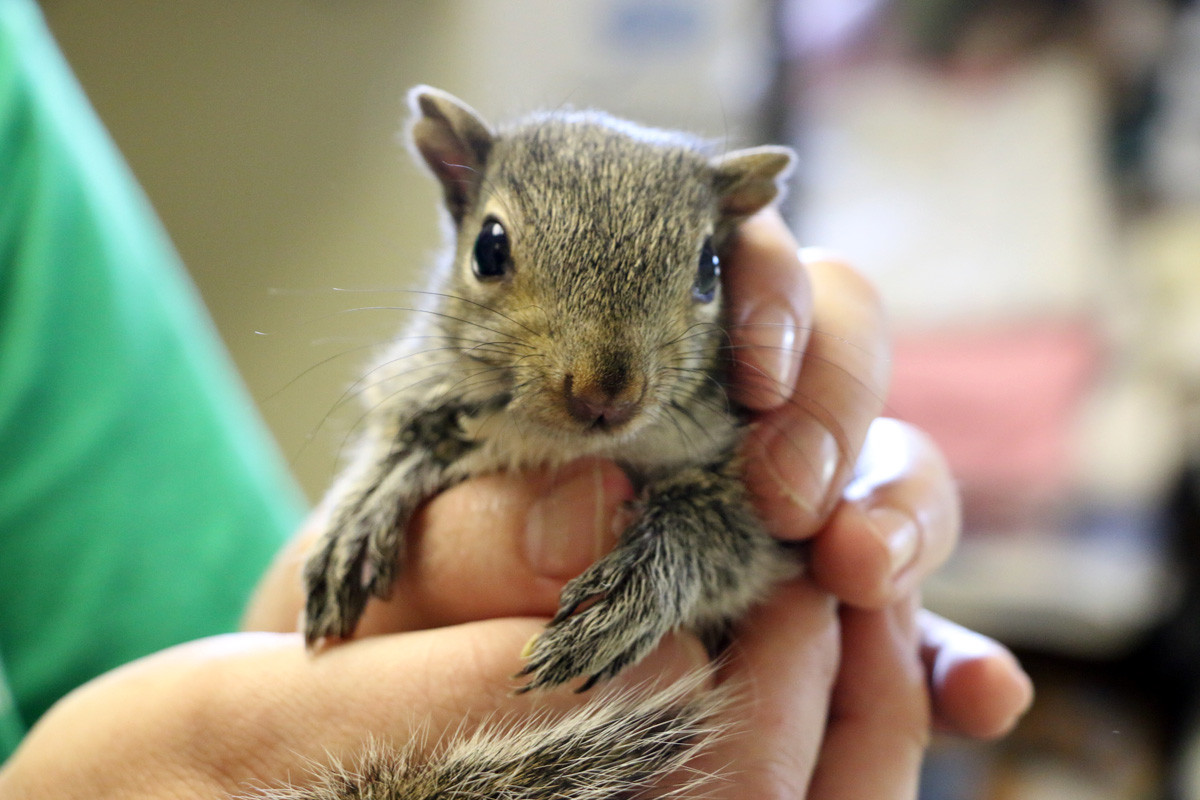Happy Spring! With the flowers and rain comes baby animals, and the Valparaiso-based Moraine Ridge Wildlife Rehabilitation Center wants you to know what you can do if you come across orphaned animals, and how to keep them out of your home.
The most important thing, according to Stephanie Kadletz, Director of the Moraine Ridge Wildlife Rehabilitation Center and Licensed Wildlife Rehabilitator, is not to panic.
“The first step is to observe the animal. If they’re injured, call us right away. Otherwise, call us, and we’ll ask a bunch of questions to make sure they’re truly orphaned. For this reason, it's important not to immediately scoop them up and bring them in," Kadletz explained.
Sometimes it's hard to tell if an animal is orphaned. Knowing the parents' habits can help.
For instance, cottontail rabbits and deer only visit their young a few times a day, and usually only at dusk or dawn. If you have them in your yard, it is better to cover cottontails than it is to move them. Kadletz recommends finding a basket with an opening that will still let the mother get to them.
As far as birds go, it’s best to call the Moraine Ridge Center, as there are different situations that require different pieces of advice.
Fledglings will be seen hopping on the ground, calling for their parents. Kadletz reminds that, “That’s a crucial time for them. It’s a normal behavior, and mom will come feed them every ten minutes if everything is okay."
“In the springtime, turtles are definitely on the move,” Kadletz said. “If you find a turtle in the road or somewhere they might be in danger, take them the way they were facing. It’s really important that you do not relocate a turtle. Box turtles will try to get back to their original location. They will cross huge roads and go through subdivisions.” If a turtle is injured, that’s another matter and it’s important to call Moraine Ridge.
Hatchling turtles never experience parental care. They do fine on their own, even if they’re small. If you find them in your yard, just put them outside of the fence. It’s okay to move them a bit to protect them from pets.
In general, when observing and watching for parents, be sure to be out of sight, because many animals will consider humans a predator and avoid you.
Moraine Ridge Wildlife Rehabilitation Center has rescued over 3,000 animals since 2014. They take in the second largest amount of wild animals in the state of Indiana.
“Our philosophy is to keep wild animals wild. That's very important. It's the reason we don’t name any of our animals, or treat them as pets," explained Kadletz. "We don't baby them, we don’t talk to them. We strive to have the highest standards in animal care and the rehabilitation field. We do a lot of research and training and best techniques.”
Keeping adult animals out of your home is the best way to keep babies out of your home. Make sure you don’t have tree limbs hanging over your house, and that any shed or porch with open space under it is fenced off. Chimney caps keep birds and squirrels from taking residence in them. Moraine Ridge gets many calls about raccoon babies in attics, so it’s important to make sure attics are sealed up without any raccoons inside. Window wells are a big issue as well. Make sure they're covered to prevent animals from falling in them.
Moraine Ridge works with the local animal hospitals to keep the animals cared for. McAfee Animal Hospital is also licensed to treat wildlife, and shares in Moraine Ridge's mission to protect them.
If an animal is injured, Moraine Ridge will often work with McAfee Animal Hospital to provide that animal with the best care.
“We don’t currently have the resources to bring injured animals in, but Moraine Ridge is happy to help us out and transport them,” said Dr. Danielle Walker of McAfee Animal Hospital. “Before Moraine Ridge, we struggled to find a place for every wild animal we found. We’re a very busy practice, so we don’t have the manpower for rehabilitation. They need a lot of environmental stimulation and lot of advance."
She continued, "We care. We do whatever we can in order to rescue and stabilize and then Moraine Ridge is invaluable when it comes to our long-term rehabilitation.”
For more information about the Moraine Ridge, Wildlife Rehabilitation Center visit http://www.mrwildliferehab.org/. For more information on McAfee Animal Hospital visit http://www.mcafeeah.com/.

